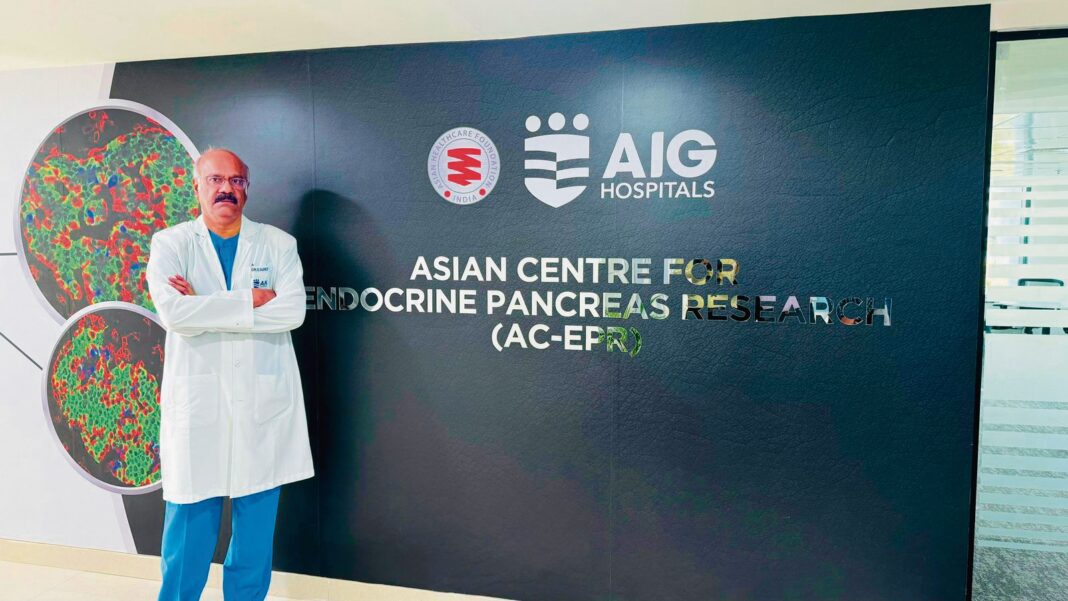A Centre on Endocrine Pancreas for diabetes research was on Wednesday inaugurated at the AIG hospitals.
The research facility aims to study the endocrine function of the pancreas, with the objective of understanding and developing personalised treatment algorithms and solutions for management of diabetes in our population.
Speaking on the occasion, Dr D Nageshwar Reddy, Chairman AIG hospitals said, “There is an urgent need to address the diabetes epidemic gripping our nation. With over 10 crore diagnosed cases and counting, India stands in the forefront of this global health crisis. It’s imperative that we establish a dedicated research facility to delve into the intricacies of diabetes from an Indian perspective. Extremely glad that our team of researchers got the grant from DBT-Wellcome Trust India Alliance involving four other institutions of repute. By harnessing our collective expertise and resources, we can pioneer novel therapeutics tailored to the unique genetic, dietary and lifestyle factors prevalent in our population with respect to diabetes.”
Shedding light on the nature of studies taken up at the centre, Dr M Sasikala, Principal Investigator for this project said, “The elementary step was to create an interdisciplinary team consisting of endocrinologists, pancreatologists, molecular biologists, bioinformaticians, epidemiologists and other key experts who are working in diabetes research. Under the Asian Centre for Endocrine Pancreas Research (AC-EPR), we will integrate all such expertise from across the world under one roof and study the mechanism (pathogenesis) of insulin deficiency in our population. The centre will also facilitate the storage of islet cells (cells which are responsible for insulin production in the pancreas) in a Bio Bank to help future research purposes.”
“One of the most fascinating aspects of this collaborative research project is the objective to find metabolic markers for progression of glycemia, which means that through various scientific analysis we can identify factors via simple blood examinations and would get to know who will develop diabetes, which individual will respond to certain drugs, diabetes intervention (endoscopic or surgical) will work or not, etc. This will lead to a completely personalised and precision medicine-based approach for diabetes treatment in our country,” Dr Reddy further added.
endocrine function of the pancreas Centre for diabetes research set up at AIG hospitals




